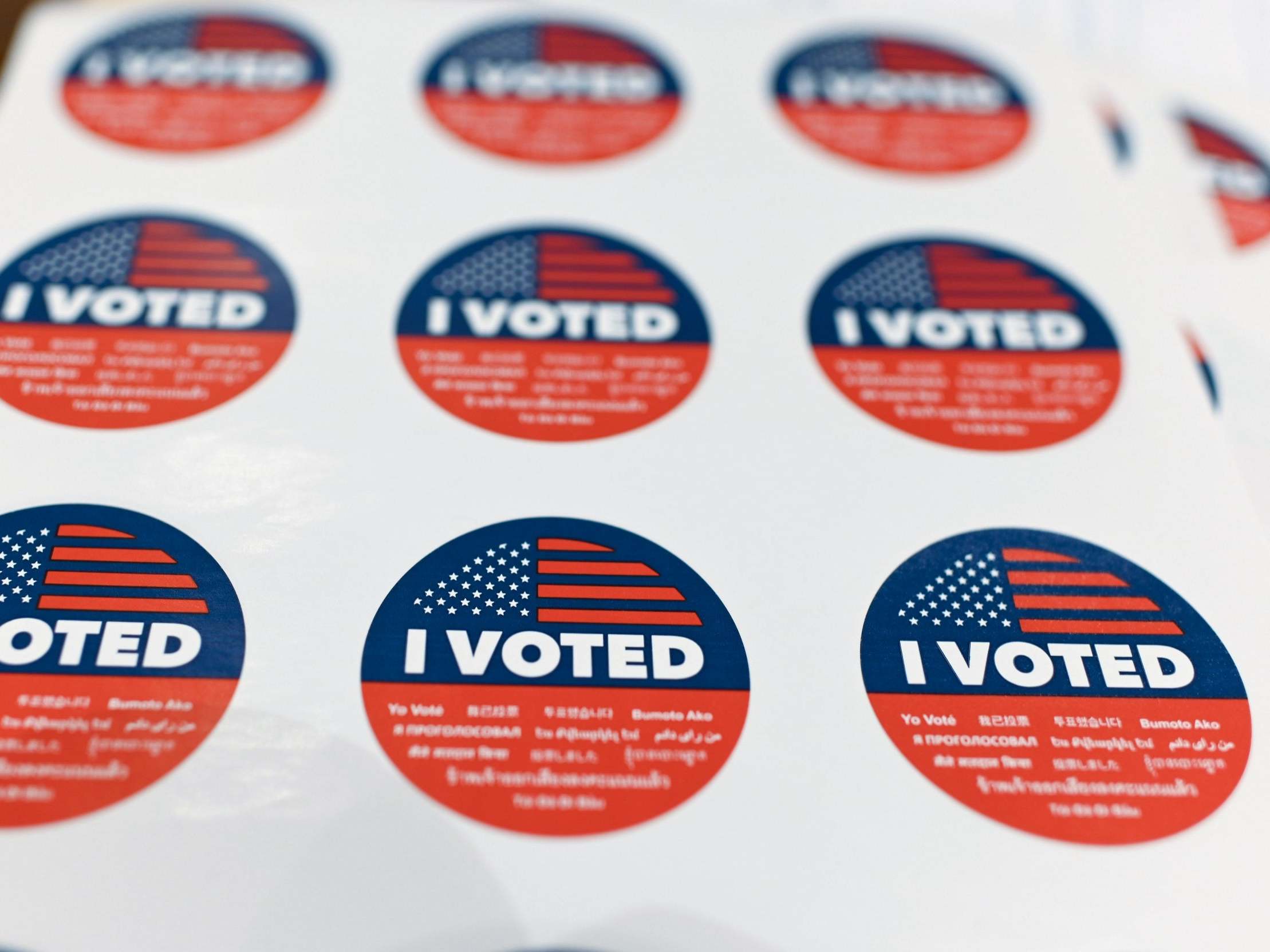How many delegates are up for grabs at the next Democratic primaries?
With all but two candidates out of the running, every state matters

Super Tuesday may have come and gone, but Joe Biden and Bernie Sanders still have everything to play for. Next up are two slightly-less-super Tuesdays in a row, each featuring delegate-rich states (along with some smaller ones) that could help either man open up a winning lead.
First up is 10 March, where a total of 365 delegates are allocated based on primaries in six states – and one very different contest altogether.
Idaho: 20 pledged delegates
Small and safely Republican, Idaho historically held caucuses before switching to a typical primary process for this year. It may offer candidates relatively few delegates, but as with other small states, that doesn’t mean it doesn’t matter.
Because of the Democrats’ proportional allocation rules, a blowout win by one candidate in a state like Idaho can split those delegates heavily in their favour – very important if the race ends up extremely close.
Democratic candidates compete on the campaign trail: In pictures
Show all 18Michigan: 125 pledged delegates
Without a doubt the day’s most important primary. Michigan doesn’t just carry the most delegates of all six states; it also carries enormous symbolic weight.
This was one of the three “rust belt” swing states Hillary Clinton narrowly lost to Donald Trump in 2016 – in this case by less than 11,000 votes, or 0.23 per cent.
Clinton also lost it to Sanders in the midst of their long primary battle. It was one of his most surprising victories against her, polls having shown him more than 20 points behind.
Mississippi: 36 pledged delegates
Mississippi, by contrast, was not a success for Sanders last time around. He lost it to Clinton by nearly 66 points, netting just 5 delegates to her 31.
If Joe Biden can capture it and most of its delegates this time around, it will cement his argument that he has a better chance than Sanders of rallying support among black voters – who in this state can make up as much as 70 per cent of the Democratic electorate.
Missouri: 68 pledged delegates
Missouri was for decades a bellwether state in presidential elections, almost always picking the winner. That changed in 2008, when it broke for John McCain over Barack Obama, and since then it’s voted Republican.
Sanders lost the state to Clinton last time around by around 0.25 per cent. However, she again defeated him among black voters, this time 67-32.
North Dakota: 14 pledged delegates
North Dakota is a safe Republican state, one that’s trended heavily away from the Democrats over the last three elections. Its primary is this year takes the shape of a so-called “firehouse caucus”, essentially meaning the process is run by the party, not by the state, in turn meaning that there are fewer polling locations.
Postal voting has been underway since 20 January – before Biden first collapsed then rebounded.
Washington: 89 pledged delegates
Washington state, meanwhile, is a safe Democratic hold. It votes by mail; to be counted, all ballots must be postmarked 10 March at the latest.
This is the first time Washington will use the results of its primary to allocate delegates to the Democratic convention. It previously used a caucus system alongside a non-binding primary, but has now moved away from that system.
Democrats Abroad: 13 pledged delegates
Yes, the big-delegate states will always get the headlines. But remember: every delegate counts.
The Democrats give their overseas members a voice in the primary under the umbrella of “Democrats Abroad”, provided they don’t vote in any other state’s primary. They can vote in person at ballot centres in locations around the world, and they have a week to do it; March 10 is their last day.
Subscribe to Independent Premium to bookmark this article
Want to bookmark your favourite articles and stories to read or reference later? Start your Independent Premium subscription today.

Join our commenting forum
Join thought-provoking conversations, follow other Independent readers and see their replies